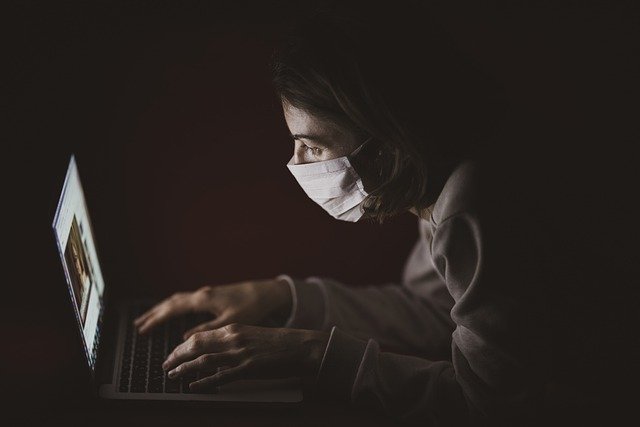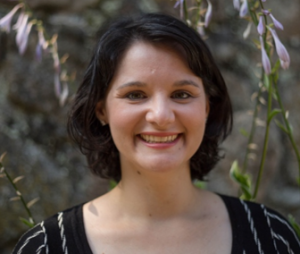Hi everyone!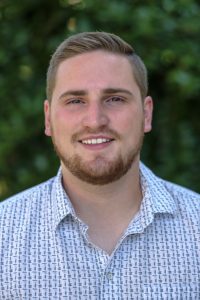
My name is Clay Fleming and I am a second-year student in the residential MPA program here at the UNC School of Government. As we continue these blogs, I hope to provide a closer look at the student experience within the program, as well as offer some insight into the incredible work others with a MPA degree are accomplishing in their communities. In my first blog, I am going to share a little about myself and the path I took to arrive here at UNC.
My journey to the MPA program was different but not too out of the ordinary. While pursuing my bachelor’s degree at Appalachian State University, I was heavily involved in a community service organization called Appalachian & the Community Together (ACT). In this organization, I helped provide community volunteer opportunities to students at Appalachian State as well as lead service trips to different communities across the country. Through my involvement, I began to realize I have a passion for serving communities.
This realization was made even clearer during my senior year, when I had the opportunity to lead a community service trip to San Francisco. The group I was leading worked with three non-profits in the Bay Area, all of which discussed working with local government to create ordinances that were mutually beneficial for the non-profit and San Francisco residents. Through witnessing the direct impact these partnerships had on the community, I realized I wanted this to be my career. The next day, I found UNC’s MPA website, read about the program’s focus on both non-profits and local government and I was sold!
Once I started the residential program last fall, I began to see all of the different avenues this degree could take me. Prior to starting the MPA degree, I never gave much thought to working in local government as a career, as I was set on working for a non-profit. However, with local government being the strong point of the program, my interests were ignited. Over the summer, I had my first authentic exposure to life working in a municipality through my Professional Work Experience (PWE) with the Town of Holly Springs. While interning there, it was incredible to see the inner workings of the government body to support residents, especially during COVID-19.
Ultimately with my MPA degree, I hope to create positive social change in the world that includes an emphasis on social equity. Whether my career leads me to local government or the non-profit sphere, I want to continue my passion for strengthening communities and serving people. I am very thankful for the opportunity to pursue this career and the support this program offers to me and my peers. I look forward to regularly updating you on various topics and happenings within public administration.
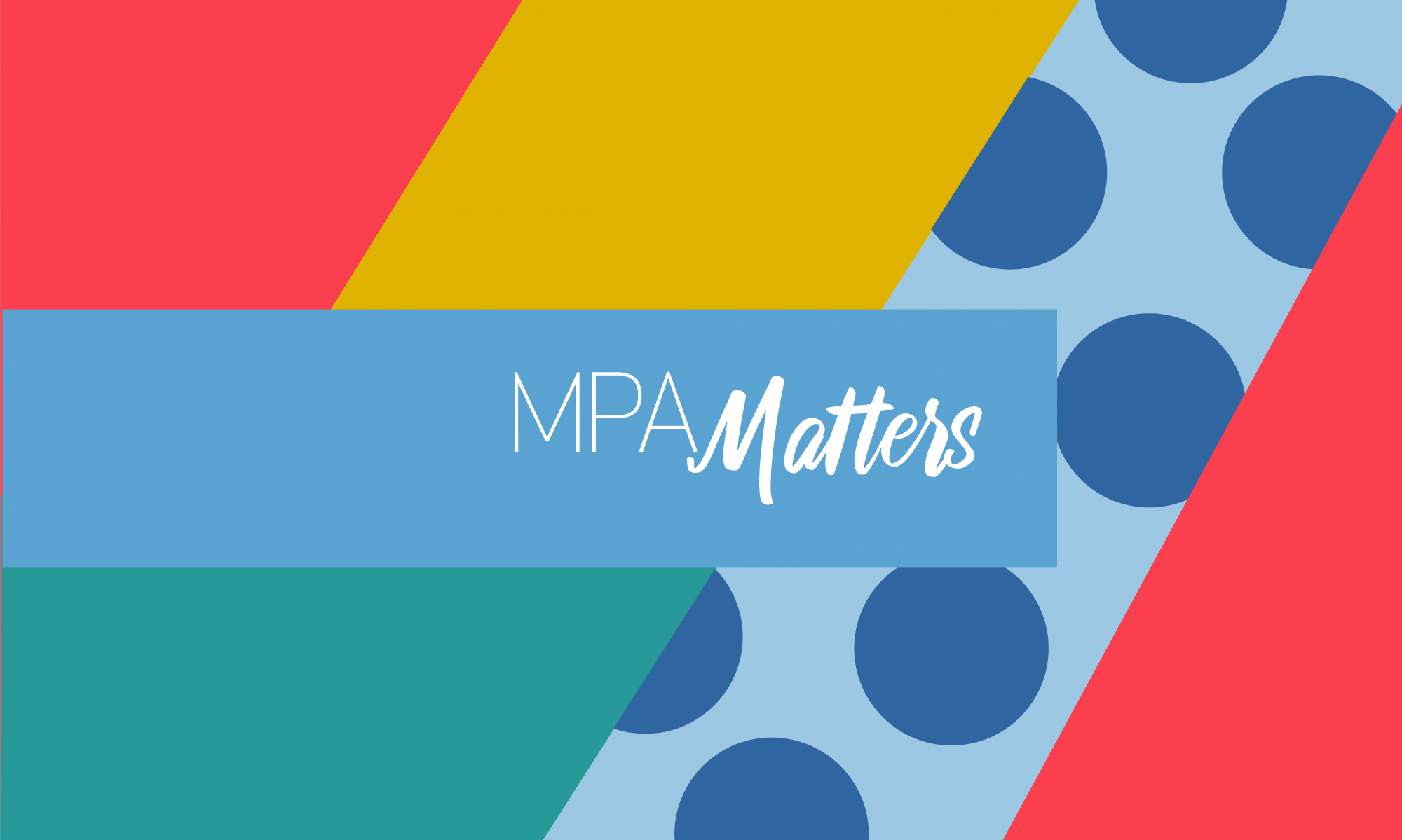

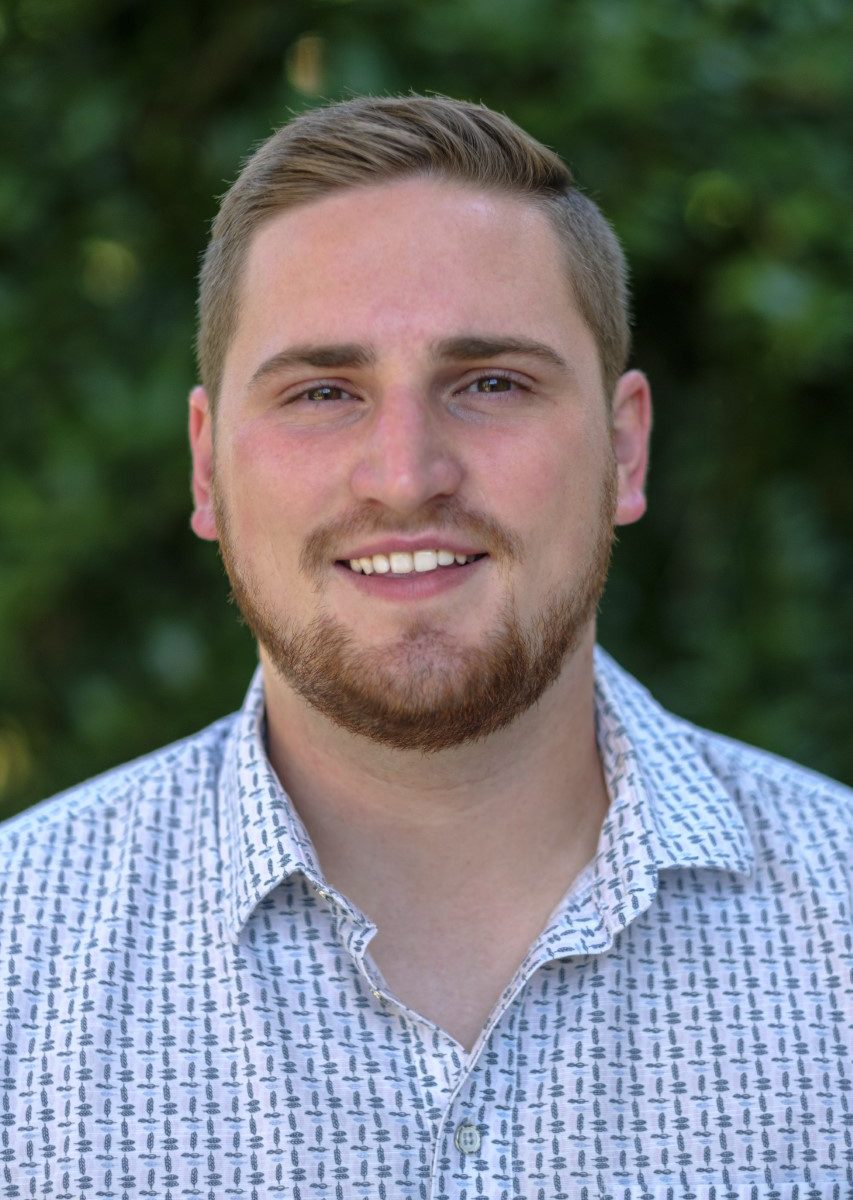
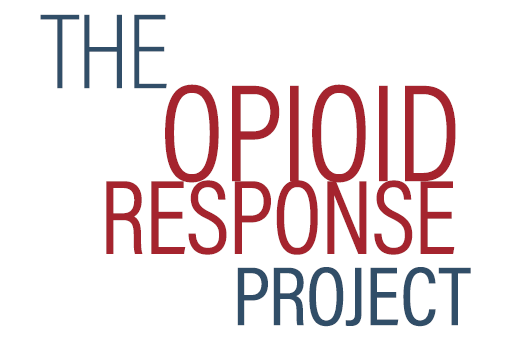
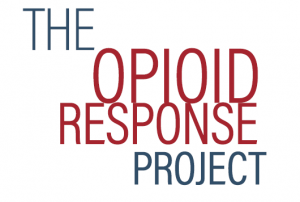


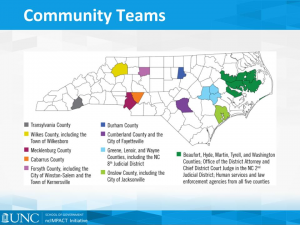

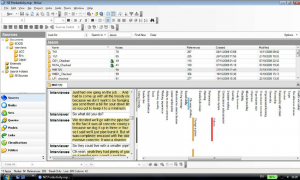
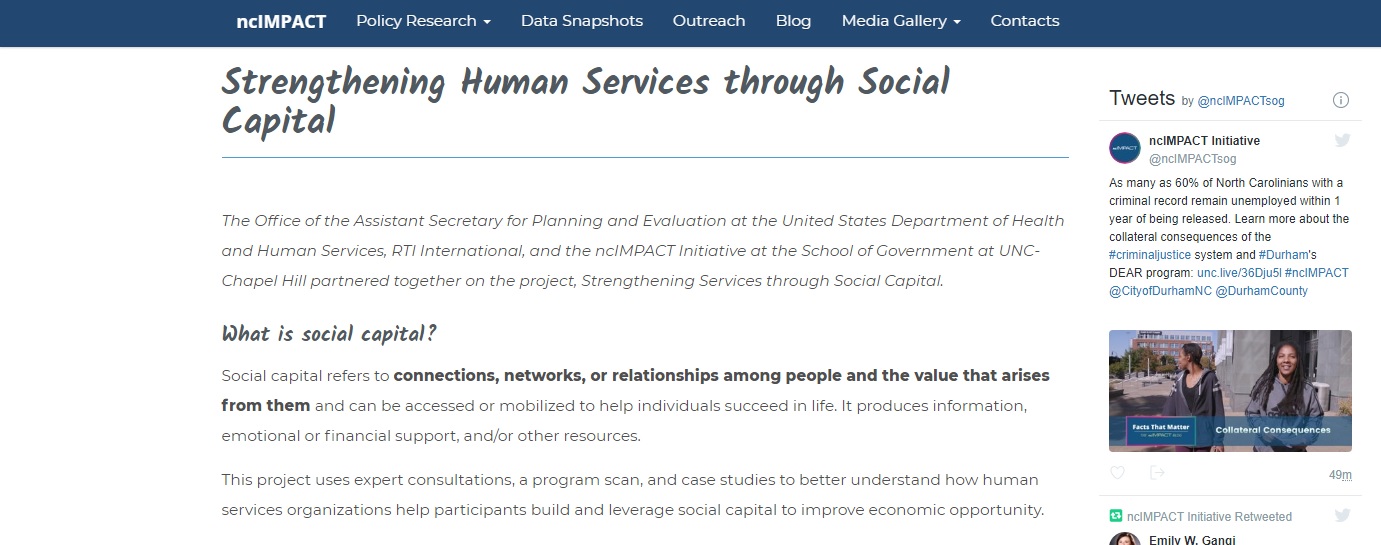
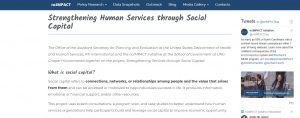
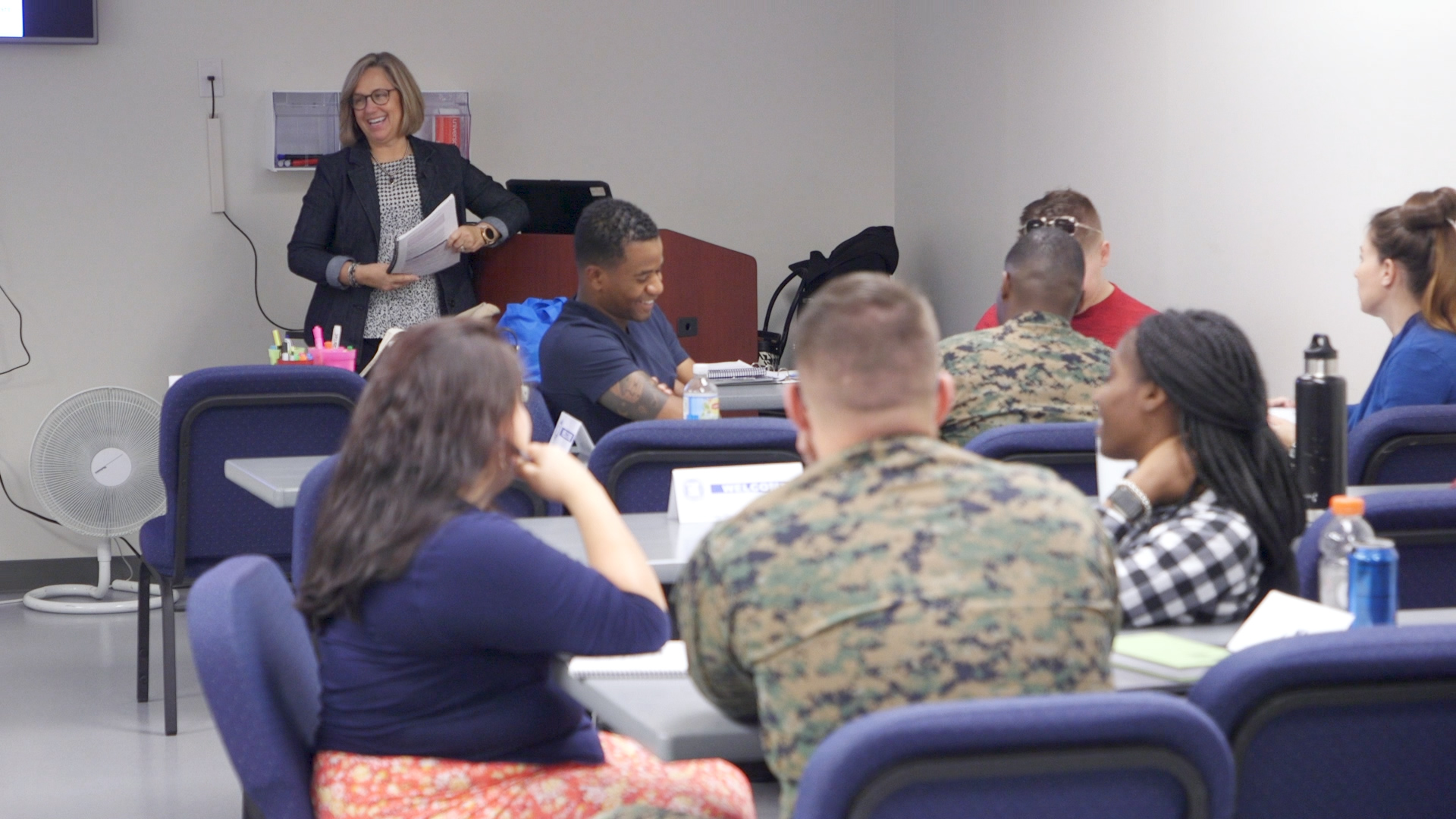
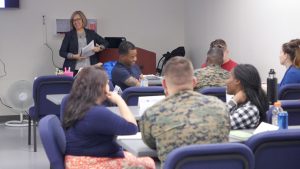 ncIMPACT Initiative
ncIMPACT Initiative